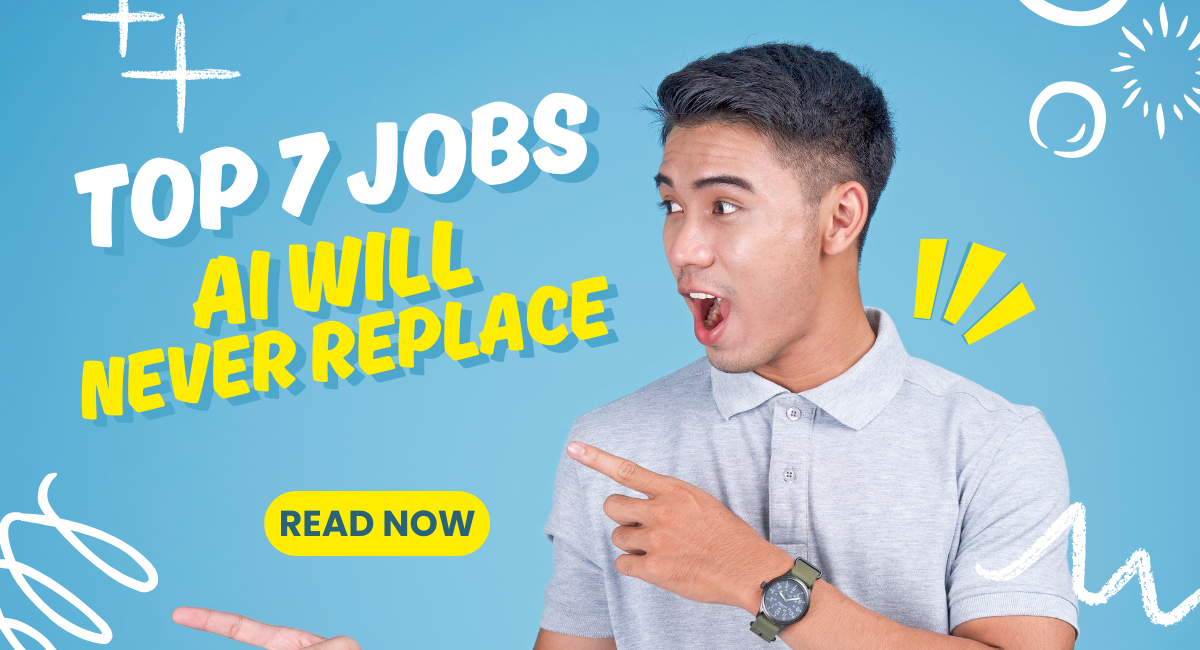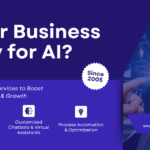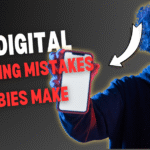In today’s fast-paced digital world,, Artificial Intelligence (AI) is transforming industries and changing the way we work. While AI is automating many functions, there are still professions that depend significantly on human talents, creativity, and emotional intelligence—qualities that machines cannot imitate. If you’re worried about job security in a future influenced by AI, there’s no cause for panic. Some jobs require a human touch that automation simply cannot provide.
This article from Smart Digital Guide will explore seven careers immune to replacement by AI, highlighting their sustainable nature going forward as well as the skills that make these positions essential.

1. Teachers and Educators
No matter how advanced AI gets, it cannot fully replace the roles of teachers. Education goes beyond simply delivering information; it also includes understanding emotions, encouraging students, and motivating them to reach their full potential.
While AI can assist with tasks such as automated grading or providing study materials, it does not possess the empathy and personal connection that learners seek from a human teacher. The ability to grasp a child’s unique needs, offer support, and guide them through challenges is an inherent human skill.
Why AI Can’t Replace Teachers:
- Support for emotional development and direction
- Nurturing significant connections with learners
- Understanding emotional influences and educational patterns
2. Healthcare Professionals and Doctors
Healthcare is a highly sensitive domain where human judgment and empathy are essential. Although AI can evaluate medical documents or recommend treatments, it cannot replicate the personalized care and emotional support that doctors and nurses offer.
When patients experience fear or anxiety, they require human comfort, compassion, and connection—qualities that AI lacks. Choices regarding surgeries, mental health therapy, or end-of-life treatment demand human insight rather than mere data interpretation.
Why AI Can’t Replace Healthcare Workers:
- Emotional understanding and bond with patients
- Moral judgment in delicate circumstances
- Capability to respond to unforeseen obstacles
3. Creative Professionals (Writers, Artists, Designers)
Creativity is a fundamental trait unique to humans. Although artificial intelligence can generate images or create written works, it lacks the capacity for authentic thoughts, emotions, or personal experiences that drive real creativity.
Writers construct stories that connect with people’s feelings, artists create pieces that embody cultural and emotional depth, and designers bring their visions to life. These uniquely human experiences cannot be replicated by machines, no matter how advanced they become.
Why AI Can’t Replace Creative Jobs:
- Uniqueness and personal human expression
- Ability to evoke emotions through art and language
- Imagination that goes beyond programmed knowledge
4. Psychologists and Therapists
Mental health care revolves around attentively listening to patients, comprehending their feelings, and fostering trust. While AI Caring for mental health revolves around active listening, comprehension, and establishing trust with individuals. While AI chatbots can generate automatic replies, they lack the ability to offer authentic empathy or emotional backing during challenging moments.
Psychologists have the capability to interpret body language, vocal tones, and feelings—qualities that machines are incapable of fully imitating. To facilitate mental healing necessitates a human connection that will forever protect this field from being overtaken by AI.
Why AI Can’t Replace Therapists:
- Emotional insight and empathy
- Deep understanding of human behavior
- Ability to cultivate authentic connections with patients
5. Skilled Trades and Craftsmanship Jobs
Fields like electrical work, plumbing, carpentry, and mechanics require hands-on skills, problem-solving capabilities, and rapid decision-making—challenges that AI robots struggle to meet.
Every repair or building project is unique and often necessitates human creativity and adaptability to find solutions. While machines can assist with certain aspects of the work, human engagement remains essential for addressing unexpected problems and ensuring top-notch results.
Why AI Can’t Replace Skilled Trades:
- Manual dexterity and hands-on problem-solving skills
- Capability to function efficiently in uncertain, real-life scenarios
- Decision-making grounded in personal experience
6. Leadership and Management Roles
Great leaders inspire people, make tough decisions, and understand the complexities involved in leading organizations. Although AI can process information and provide recommendations, true leadership necessitates emotional intelligence, negotiation skills, and the ability to unite teams—traits that are uniquely human.
In situations such as steering a company, managing crises, or engaging in business negotiations, trust and personal relationships are critical factors that AI cannot replicate.
Why AI Can’t Replace Leaders:
Addressing complex ethical issues and making emotional decisions1
Creative vision and innovation
Building trust and motivating people
7. Social Workers and Community Helpers
Social workers commit themselves to providing assistance to individuals facing emotionally charged and intricate circumstances. Whether it’s offering support to families in distress or aiding those who are at risk, these roles demand a level of kindness, compassion, and insight into human feelings that cannot be matched by artificial intelligence.
Although AI may aid in tasks like gathering data or managing resources, the genuine connection and empathy inherent in this profession are unparalleled.
Why AI Can’t Replace Social Workers:
- Handling sensitive situations with compassion
- Genuine care and emotional support
- Building trust among individuals and communities
Final Thoughts
Artificial Intelligence serves as a formidable instrument that is transforming various sectors, yet it encounters challenges regarding human emotions, creativity, and interpersonal relationships. The seven professions that AI will never supplant are those demanding empathy, innovation, and decision-making capabilities unique to humans.
When selecting a career for the future, prioritize skills that machines find difficult to replicate—such as emotional intelligence, creativity, leadership abilities, and flexibility. This approach will help you remain pertinent in an AI-driven environment.
At Smart Digital Guide, we advocate for technology supporting humans rather than taking their place. Although AI is altering our work dynamics, roles reliant on human interactions and creativity will consistently be sought after.









